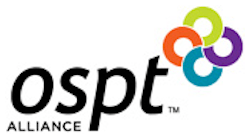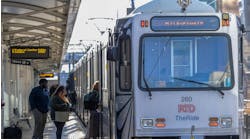In its 2008 paper, ‘TransitVision 2050’, the American Public Transport Association (APTA) laid out its long-term vision for fare collection: “In 2050 … separate methods for paying for one’s travel across the modes have vanished. Whether the trip is intra-region, intercity, or international, the technology to pay a fare or a toll is the same. Roads, air services, public transportation routes and intermodal connections are designed and coordinated in a fully integrated way.”
Making this vision a reality is possible today by utilizing existing technologies, provided fare solution architectures integrate various fare collection designs, thereby fostering competition and providing riders’ with a choice of how they pay for transit. But there are major speed bumps along the road to achieving fully integrated automatic fare collection / revenue (AFC / AFR) systems. This is partially thanks to the current prevalence of proprietary solutions (from integrated circuits through to software protocol) and the associated inflexibility of proprietary systems to quickly adapt to a rapidly evolving technological landscape in the way people pay for things.
Creating next generation fare solutions is a balancing act, as transit agencies look to embrace the flexibility and cost savings that are offered by newer technologies such as mobile, wearables and others; while maximizing the value of extensive existing investments in hardware and software as a ‘rip and replace’ strategy is usually not an option. True interoperability is key in bridging the old to the new. In order to achieve APTA’s 2050 vision of a truly seamless fare solution landscape, it is necessary to create a framework that enhances competition, speeds up innovation and fosters growth; leveraging the talents of many players to collaborate on creating interoperable solutions as opposed to just a few.
Where are the challenges?
U.S. transit agencies looking at the future of fare collection need to reconcile seemingly conflicting objectives:
- Reduce capital and operating costs, and unnecessary system complexity
- Support new methods of payments (e.g. mobile phones, wearables, etc.) to reduce operating costs and attract new riders
- Build a future-proof system that supports legacy, interoperability and upgradeable security
- Enable seamless multi-applications at no additional cost (e.g. combined student ID/transit card)
- Ensure seamless migration from legacy systems
How can these challenges be addressed?
We at the OSPT believe the answer lies with truly open platforms.
There are numerous examples around the world, which demonstrate how open standards foster competition, innovation and growth. Take the ‘USB’ (Universal Serial Bus) connectivity standard for example; providing the convenience of having one which underpins the wealth of devices and available appliances, combined with the breadth of the competitive offering within the marketplace. Likewise, the adoption of an AFC / AFR open standard in the U.S. will lead to the development of cross-transport networks and cross-border solutions. It will also support the increase of public-private partnerships, which facilitate the adoption of these services.
In economic terms, open platforms will also greatly help the transit authorities by fostering a competitive marketplace, with multiple vendor offerings, thereby decreasing their long-term costs. The benefits to the transport authorities are multiple, including:
- Use of standard, off-the-shelf solutions (cards, readers, mobile devices, etc.) from a much larger supplier base and ecosystem
- Access to a virtually unlimited choice of hardware, infrastructure and service vendors for system upgrades, extensions, etc.
- Easier path to interoperability with other agencies
- Faster adoption and integration of new technologies
- Use of an open standard specifically designed to meet the needs and requirements of the transport industry
Is there such an open standard for transport?
The OSPT Alliance (Open Standard for Public Transport) is a member-driven, international association, established in 2010. It was chartered to provide the standard for secure transit fare collection solutions. Membership is open to technology providers, chip manufacturers, card manufacturers, system integrators, solution providers, software developers, government agencies and transit operators who want to help promote an open standard ecosystem. In order to do so, OSPT Alliance members collaborated to develop the CIPURSE open standard. CIPURSE provides an answer to all the challenges listed above:
- It is a true open standard, with no proprietary component
- It is compatible with all legacy systems
- It provides flexibility and scalability (using the same crypto protocol and command set from limited-use cards to full-featured cards, to mobile platforms)
- It is built on proven standards (ISO/IEC 7816-4, ISO/IEC 14443, parts 2-4) and security algorithm FIPS-197 (AES-128), which ensures that it is future-proofed against evolving technologies
- It supports stored-value, account–based and account-linked
- It supports multi-applications such as transit, mobile, loyalty and micro-payment
Furthermore, OSPT Alliance has established a dedicated working group focused solely on North America, to address the unique needs of this market. The group is actively engaging with stakeholders across the transport ecosystem to help meet the 2050 vision.
Laurent Cremer has held the position of Executive Director of OSPT Alliance since its formation in 2011. In this time he has successfully driven awareness of the alliance, secured key partnerships within the public transport ecosystem and engaged new members to join and contribute to the work of the body.
Within his role Laurent liaises directly with the OSPT Alliance Board and members to coordinate and implement its strategic vision. He works across its various working groups to advance objectives and represents the alliance externally at industry meetings and conferences globally.
Laurent joined the OSPT Alliance with more than 20 years’ experience working within the smartcard and RFID sector across the telecom, transportation, banking and ID markets. He has worked in numerous roles for companies such as Arkadin, IPICO, TID and Gemalto, worldwide.
Laurent is commercially proficient in four languages: French; English; Spanish; and Portuguese.




